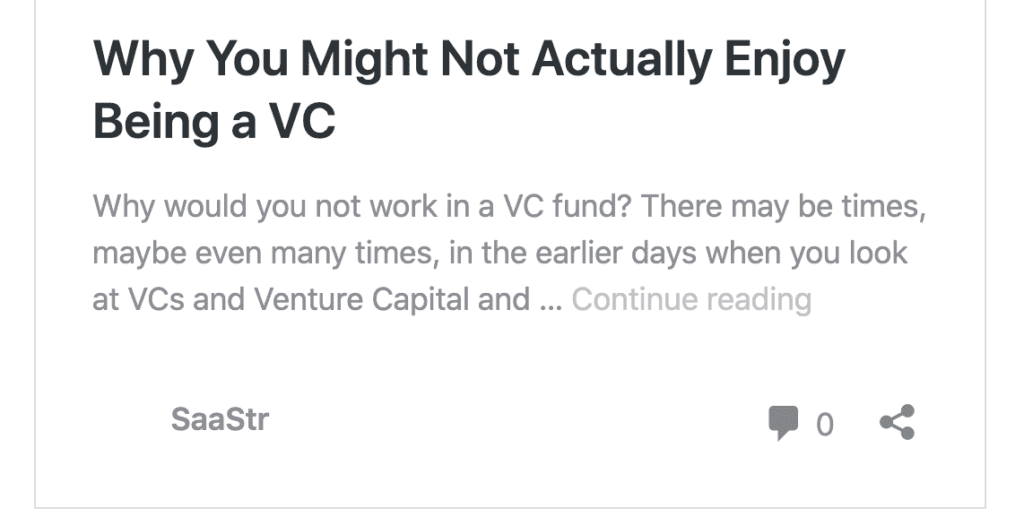It’s not all daisies and unicorns. But there are some clear benefits:
- Up to a point, significant freedom with your schedule. Board meetings and internal meetings are scheduled for sure, but for the most part, up to half your schedule is up to you, to use for the highest ROI activity.
- You sleep better than an early-stage founder. There are stressful parts of being a VC. But nothing like being an early-stage founder with limited cash runway.
- It takes a long time to get fired — even if you are bad. Most associates and analysts can coast for 2 years before getting fired. Partners can make it longer. True general partners often take 2 funds and a decade to fire.
- The pay is good, if ulimately not nearly as good as a successful founder. Very succesful founders make much more than VCs. But “pretty successful” VCs often make more than “pretty successful” founders. More on that math here.
- It’s a slight power trip for some earlier in their career. Most VCs over time get a bit humble as they get successful. It’s a humbling experience to miss so many great deals, and see that play out over time. But junior VCs can have power they’d otherwise never have early in their career. If not the power to say Yes to investment, then certainly the power to say No.
Still, it’s just not as great as being a great founder. Here’s why:


